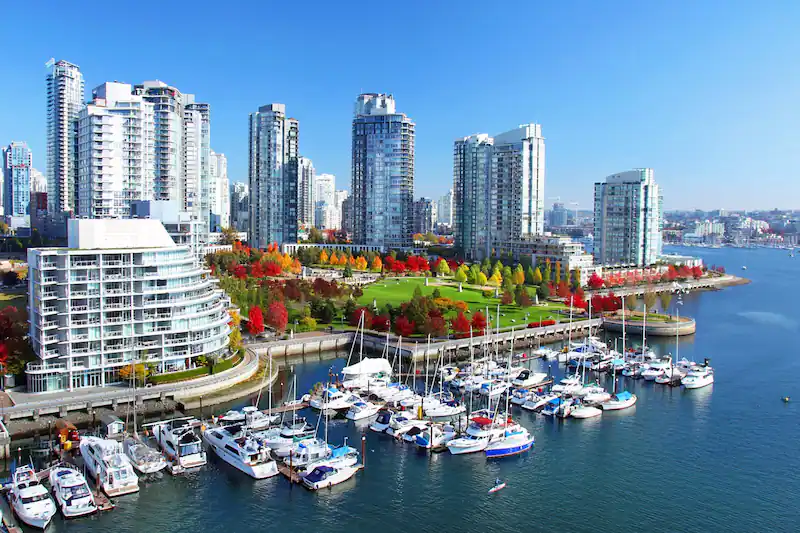Documents
Studying abroad is an important life decision. So, preparing for it and taking right steps towards it becomes extremely crucial. Applying to the universities overseas is the most important part of this journey. There are multiple documents and applications that form a part of this process. While the universities you choose may require additional documents, here is a list of some of the documents that you should get ready for most of your applications:
- Application Forms
An application form is the firm thing that the admission committee looks at to get a general idea of your overall profile and your suitability for the chosen course. This will contain your personal information and information relating to your academics and work. You must fill out all the sections that are relevant to you and provide the information with utmost accuracy. Don’t forget to make re-check the details before submitting the application.
- Statement of Purpose (SOP)
Statement of Purpose or a personal statement is one of the most important part of your application. This is one place where you will be able to express yourself, your motivations, your career goals, your reasons for applying to your chosen course and university. A strong SOP will make you stand out from other applicants with similar profiles. Hence, its important that you spend time on this and write a well thought through personal statement that best describes you.
- Letter of Recommendation (LOR)
Yet another important document, a LOR can be either academic or professional. A LOR is a letter from your referee describing your skills, your achievements or your contributions in either class or in a professional setup. It gives an insight into how are you as a person and how you work with your peers. An LOR should be from a professor/teacher who has taught you or from a Superior from work you has worked with you directly.
- Resume or CV
A CV will be able to give a detailed view of your academics, your work experience, activities, achievements, projects, etc. It will be able to cover aspects of your profile that the application or SOP will not. Be sure to mention all your qualifications, certifications, internships, experiences, researches, etc with accuracy and correct timelines.
- Academic Transcripts
These are the official records of your academic achievements from your school/university. These maybe consolidated statement of marks or marksheets for each year of study. These should however be official documents issued by your academic institution. Please make sure to use transcripts of all your academic qualifications along with degree certificates. In case you are yet to complete any qualification, please make sure to include the statement of marks until the previous semester or year that you have already completed.
- Test Scores
If you are applying for a course that requires the scores of a standardized test such as SAT or ACT for undergraduate courses and GMAT or GRE for Master’s level courses, you must prepare to take these tests well in advance to be able to send you test scores with your application. Moreover, most overseas universities will also need proof of English proficiency, and hence you must place to take IELTS, TOEFL or PTE in due time to fulfil this condition of the application.
- Other Essays
Depending on the course and the universities you choose to apply to, you may need to write additional essays on certain aspect of your profile, your work or experience. Also if you are interested in applying for scholarships, you would need separate essay on your suitability for the scholarship/s.
- Portfolio
Some courses such as design related courses require you to submit portfolio of work/designs. Requirement for the number of designs and the kind of designs in the portfolio may vary from university to university, hence its integral that you identify these requirements. You must also start work on your portfolio well in advance since it could be time consuming and in most cases would need to be submitted within a few days of your application.
- Written Work
Some courses may require you to submit examples of written work along with your application. The written work may be on a topic specified by your chosen university or examples from your past written work.
- Other Documents
You may need to provide other documents such as registration certificates or other certificate for certain courses. Some professional/accredited courses require professional registration with the local bodies and certificate or documents relating to such registration/membership may be required.
Accommodation
Finding the right accommodation is as important as finding the right university. Wrong choice of accommodation can be dampener in your overall experience overseas. To ensure you find the accommodation of your choice, you must begin your accommodation search as soon as you finalize on your university. To benefit from the ‘accommodation guarantee’ that a number of universities offer to the international students, it is important that you start this process in time.
Start by setting out your preferences and looking through the different types of accommodations available. Rate your preferences on the basis of:
- Location – Choose from a location near your institution, near a landmark or the city centre
- Distance from University – You may choose to walking distance from the university or a short drive or bus ride away
- Budget – depending on how much you are willing to spend on accommodation per week, you may choose from on-campus or off-campus accommodation or amongst different room types.
- Room Type – you may choose from different room types such as shared room, private room, ensuite with private bath, studio, etc.
- Services and facilities available – depending on the lifestyle you’d like to adopt, you may choose an accommodation based on the facilities it provides, eg: on-site gym, games room, pool, library, etc
- Safety and Security – the kind of safety protocol adopted by the accommodation. Eg: Student halls may have 24 hours security as opposed to private rented houses.
Depending on your personal preferences, you may choose from On-campus or off-campus accommodation. On-campus accommodations are owned or managed by the university and allocated by the university itself. On the other hand, off-campus accommodation are private owned and managed either by individuals or private companies.
On-Campus Accommodation
University Hall of Residence – University Halls are the most popular choice for first year international students. They are usually located on campus and may be catered or non-catered. University halls will house other students enrolled at the same university as you and will give you the opportunity to make friends and get involved with student activities.
University Managed Houses and Rooms – These are a good alternative to student halls. Usually universities lease out houses and rooms to offer to students who prefer living in cosier facilities instead of larger ones. These allow you to experience life with other students just like University Halls.
Off-Campus Accommodation
Private Halls – Similar in format to the University halls, these are owned and managed by private companies and landlords. They may be located in the city centre or closer to the universities, they are well furnished, with great amenities and safety and security, they offer most facilities that you as a student may look for. Here, you will be able to live with students from different universities.
Private Rented Houses and Rooms – There are the private houses or flats rented by students independently or with friends. These are mostly popular amongst students returning for their subsequent years of study. Private rented houses can give you the flexibility to choose a location, price, etc.
Family Homestays or Homestays – Mostly popular amongst students enrolled on short courses or the ones who’d like to live with a family in a home environment.
For further information on the types of student accommodation an on how to choose the right accommodation, you may contact your adviser at Aspirebig.
Finances and Loans
Choosing to study abroad is an important decision but also an expensive one. We work with students and their families in understanding their financial means and their requirements. Depending on these factors, we guide students on selecting the right destination, courses and universities. At the same time we guide students in finding the best possible solution viable to them either through the right scholarships, education loans or personal finances.
Scholarships
Scholarships maybe available from different sources such as university, government or external bodies. For more information on scholarships, you may access our scholarship info HERE, or contact an expert at Aspirebig.
Education Loans
The education loan is available to students who would like to pursue their degrees at a recognized university overseas. It may cover the cost of tuition fees and cost of other expenses. The rates of interest and repayment plans may vary from bank to bank.
If you are depending on an education loan from an bank, it is advised that you start the process with the bank well in advance to allow the bank sufficient amount of time to conduct different checks before they are able to approve the loan.
To extend support on education loan, we have partnered with Avanse Financial Services. Depending on your profile and that of your family, they can provide you an education loan with relative ease.
For more information, please feel free to contact Aspirebig.
Pre-Departure Information
You are finally done with the more complicated and difficult part of the process of applying, VISAs, etc. The next stage, while exhilarating and overwhelming, is the easier part. You are about to turn a new page in your life and you should prepare to make the best of the experience that the overseas education provides. Prepare to explore the country and opportunities it offers; make friends and strengthen your network; all while learning from the best of faculties in the world.
While you prepare yourself for the experience, we can help you prepare to start-off that journey smoothly so that you don’t have to worry about settling in a new country away from your family.
You may contact your adviser at Aspirebig for detailed information on settling in your chosen country. In the meantime, some of the information below may come handy in helping you get started.
Things to pack
- Clothes – Pack clothes according to the weather in your chosen location. Don’t forget to carry some formal clothes for presentations, meetings or interviews and traditional/ethnic clothes for festivals.
- Shoes – Carry comfortable walking shoes and a pair of formal shoes.
- Medicines – Carry basic SOS medicines and any prescription medication that you take regularly along with the prescription from your doctor.
- Toiletries
- Pack some utensils as per your requirement and convenience.
- Currency of the country you are travelling too.
- Electronic Gadgets – Mobile phones, Laptop, tablet, headphones, Universal charger, USB cable etc.
Please avoid overpacking or carrying items that you rarely use.
Documents to be carried
- A valid passport and VISA
- Travel ticket and departure details
- Copy of academic docs
- Offer letter from the University
- Confirmation from your accommodation
- Medical Insurance documents
- Copies of bank drafts/information about your bank accounts
- Information about the airport/train station pick up (if required)
- A copy of your student card, if already available
For a full list of documents required to carry, specific to your chosen country and university, please contact your Adviser at Aspirebig.
Things to do when you reach your location
- Reach your accommodation on time and inform the University
- Unpack yourself and settle down
- Register with the University at the earliest possible keeping in mind your registration deadline
- Register with local authority (where required)
- Arrange for a phone sim card
- Buy your essentials like bedding, groceries, etc. to settle in your accommodation
For a full list of things to do when you reach your chosen country, please contact your Adviser at Aspirebig.
Health Insurance
While you are preparing for your study abroad, thinking about health cover might be the last thing on your mind. However, getting health insurance means that there will be someone who will have your back and cover you financially in times of medical emergencies.
As an international student, you will not be able to access the national health services free of charge, and covering medical costs through out of pocket expenses may be more expensive than you could imagine. A good Overseas Health Cover could cover costs for:
- Doctor’s visits
- Hospitalization
- Prescription medication
- Any small procedures that may be required
Getting a health cover from an approved organization is also a pre-requisite for VISA application for some countries.
Please feel free to contact your adviser at Aspirebig for further information and help choose the right health cover.
Student VISA
A student VISA is a stamp of approval on your passport from the immigration authorities of the country of your chosen educational institution, permitting you to enter the country and stay for a specified period to complete your study program. And as an international student who would need to travel to a foreign country to take up a course, this is one of the most important and critical steps towards beginning your educational journey.
When to Apply for the Student VISA?
You may officially begin your VISA application process once you have a confirmation of enrolment from your chosen institution. However, the actual preparation for VISA application must begin much before that. You must research and gain clarity in advance of the actual requirements of the student VISA from the point of view of financial requirements, health checks, police verification, insurance or health covers, and other documentary evidence needed. Getting some of these elements together for the VISA application may be time consuming and waiting until the actual VISA application to get started is not advised. For example, you may need to arrange funds and may need to show the required funds in the bank account for a fixed amount of time OR may need to apply for education loan, the procedure for which may take 10-30 days.
You must apply for the valid student VISA as early as possible, regardless of the start date of your course, as the VISA processing timelines vary from country to country, also making the immigration authorities busier with large number of applications closer to course start dates.
How to apply for Student VISA? What all is needed?
Different destinations have their own VISA requirements, and is always best to check these before beginning the VISA process. However, in general the below are some of the documents that are needed by most countries for the VIA application:
- Confirmation of Admission from a recognized institution
- Passport with a validity of a minimum 6 months
- Proof of sufficient funds to cover tuition fees and living expenses
- Proof of English proficiency
- Passport size Photograph
- Health insurance (needed by some countries)
- Health check/ Police verification (needed by some countries)
If you have decided on your university and course, we can support you on the VISA application process and keep you informed on the latest updates. We’ll inform you on do’s and don’ts of the process and help you prepare the documents in the correct format, help complete VISA application forms, book appointments and prepare of VISA interviews.
FAQs
How many LORs do I need for my overseas university application?
While the number of LORs may differ for different institutions, but you may need 1-3 references depending on your chosen university and level of study.
How many LORs do I need for my overseas university application?
While the number of LORs may differ for different institutions, but you may need 1-3 references depending on your chosen university and level of study.
Who can I get the LOR from?
You must get the LOR from someone who’s worked with you, either a professor or teacher from your previous institution OR a superior from work who has worked closely with you on projects or works with you on continued basis.
Please avoid getting LORs from someone who have never taught you or may know you in limited capacity.
When can I apply for my student VISA?
You must apply for your student VISA at the earliest possible. As soon as you have met all the requirements of your chosen university and have received the confirmation of enrolment, you may start your VISA process.
Do I need to apply for a separate VISA to work part-time?
You don’t need a separate VISA to work part-time in your chosen country. However, the guidelines on the time permitted or additional requirements for part-time may vary from country to country and you are advised to follow these guidelines.
When should I apply for my accommodation?
How Can We Help?
14+ Yrs of Experience placing students in Top Universities overseas
98% Admission Success Rate
99% Visa Success Rate
100% Student Satisfaction
Personalized Guidance
Our skilled mentors provide individualized guidance, walking you through the process of studying abroad and helping you make decisions that are in line with your goals and aspirations.
University Connections
Benefit from our strong partnerships with top universities worldwide, gaining access to exclusive opportunities and ensuring a smooth transition to your dream academic institution.
Team of Industry Experts
Our knowledgeable team of professionals brings extensive experience in the study abroad industry, offering expert guidance and valuable insights to maximize your educational experience.
End-to-End Solution
From initial consultation to visa assistance and pre-departure support, we provide a comprehensive solution to ensure a seamless study abroad experience from start to finish.









